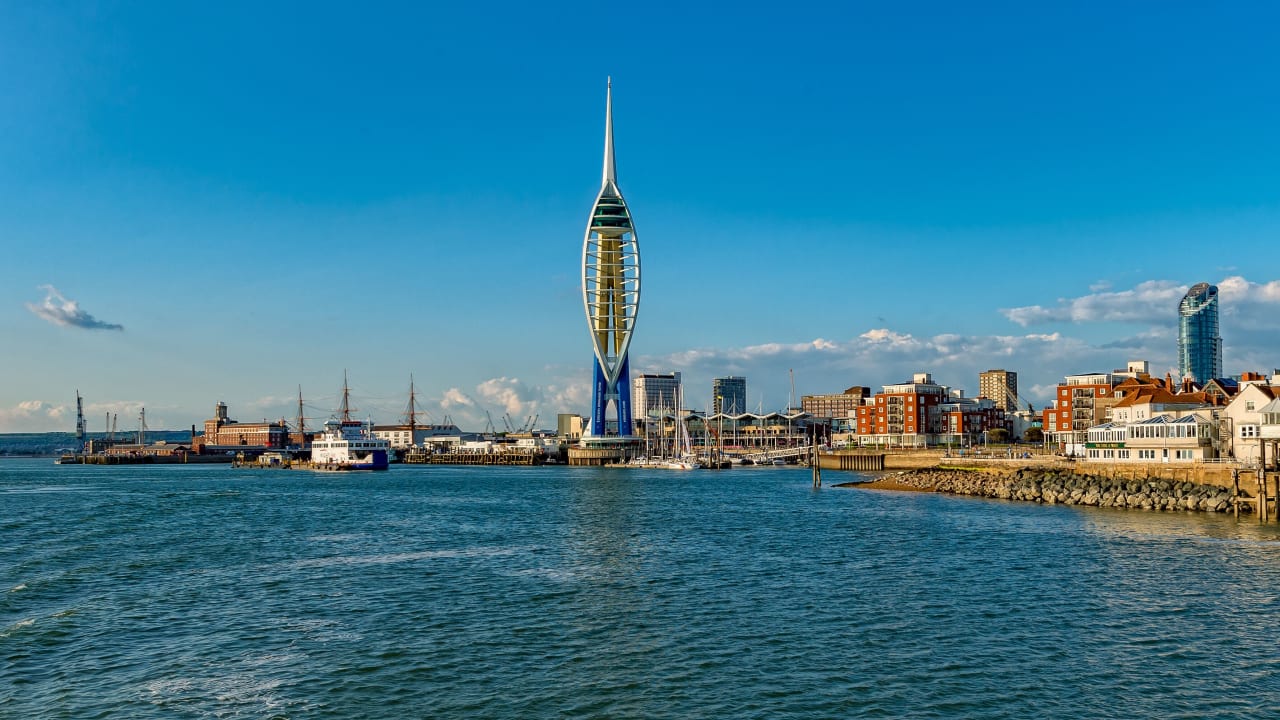
BSc (Hons) Biology
University of Portsmouth

Key Information
Campus location
Southsea, United Kingdom
Languages
English
Study format
On-Campus
Duration
3 - 4 years
Pace
Full time
Tuition fees
GBP 9,250 / per year *
Application deadline
Request info
Earliest start date
Request info
* for UK/Channel Islands and Isle of Man students/EU residents | £18,300/year: international students
Scholarships
Explore scholarship opportunities to help fund your studies
Introduction
Discover how biology helps safeguard endangered species and fight disease on this BSc (Hons) Biology degree, accredited by the Royal Society of Biology (RSB).
You'll get the skills you need to turn your curiosity and love of nature into a career that matters.
Course highlights
- Put your knowledge to work in our molecular biology labs, using world-class equipment such as our ancient DNA and gene analysis facilities, fluorescence microscopes and research greenhouse.
- Get involved with the European Xenopus Resource Centre, one of the largest frog resource facilities in the world.
- Explore the diversity of local ecosystems and go on field trips to destinations such as Dorset, Devon and Mexico.
- Have the chance to gain valuable work experience on a one-year placement or to spend a year studying abroad to experience a different culture and enhance your CV.
- Be eligible to apply for Associate Membership of the Royal Society of Biology when you graduate, which includes access to exclusive grants and awards.
Accredited by
This programme has been accredited by the Royal Society of Biology following an independent and rigorous assessment. Accredited degree programmes contain a solid academic foundation in biological knowledge and key skills and prepare graduates to address the needs of employers. The accreditation criteria require evidence that graduates from accredited programmes meet defined learning outcomes, including subject knowledge, technical ability and transferable skills.
Gallery
Admissions
Scholarships and Funding
Curriculum
Modules
Year 1
Core modules this year include:
- Biodiversity and Evolution – 20 credits
- Ecology, Plants and Human Impact – 20 credits
- Experimental Biology – 20 credits
- Graduate Employability skills – 20 credits
- Introduction to Cell Biology and Biochemistry – 20 credits
- Microbiology and Molecular Biology – 20 credits
Year 2
Core modules this year include:
- Genetics – 20 credits
- Research skills in biology - 20 credits
Optional modules this year include:
- Animal Adaptations – 20 credits
- Business for Biosciences – 20 credits
- Cell Biology – 20 credits
- Community Ecology and Residential Field Course – 20 credits
- Comparative and Evolutionary Psychology – 20 credits
- Development: How Form and Function Changes – 20 credits
- Enzymes and Metabolism – 20 credits
- Hydrology and Freshwater Ecosystems – 20 credits
- Introduction to Teaching – 20 credits
- Marine Organisms and Ecosystems – 20 credits
- Microbiology – 20 credits
- Plant Diversity, Development and Evolution – 20 credits
Year 3
Core modules this year include:
- Honours Project – 40 credits
Optional modules this year include:
- Biotechnology – 20 credits
- Environmental Microbiology – 20 credits
- Evolution Ecology and Environment – 20 credits
- Gene Organisation and Expression – 20 credits
- Genes and Development – 20 credits
- Genomics in Molecular Medicine – 20 credits
- Marine Ecology and Conservation – 20 credits
We use the best and most current research and professional practice alongside feedback from our students to make sure course content is relevant to your future career or further studies.
Therefore, some course content may change over time to reflect changes in the discipline or industry and some optional modules may not run every year. If a module doesn’t run, we’ll let you know as soon as possible and help you choose an alternative module.
Placement year
After your second year, you can do an optional work placement year to get valuable longer-term work experience in the industry. Placements give you the opportunity to apply what you've learnt so far in a real workplace, boosting your employability and making you attractive to employers after graduation.
You can work for a company or organisation here in the UK or overseas, or you could go independent by setting up and running your own business with other students.
Previous students have completed work placements at organisations including Pfizer and Thermo-Fisher Scientific.
Whichever route you choose, you'll receive support and guidance. Our specialist team of Science and Health Careers advisors can help you with finding a work placement and improving your employability skills. They'll provide you with a database of placement vacancies, support with your job search – including help with applications and interviews – and support throughout your placement year.
Study abroad
You'll also have the opportunity to spend a year studying abroad on a conservation or research scheme to experience a different culture and enhance your CV.
Career Opportunities
As the scientific study of life and living organisms, biology covers a huge variety of sub-disciplines – from ecology to genetics, botany to zoology – and everything in between.
This means that there's a wide range of sectors and industries you can work in with a biology degree, so there will always be a demand for your skills.
On this BSc (Hons) Biology degree, you’ll start the course with key biological theories, before being able to shape it to your interests and choose from specialist areas like animal science, enzymes, hydrology and environmental microbiology.
You'll develop problem-solving, communication and numeracy skills alongside technical skills, and in your final year, you’ll have the opportunity to investigate a research question for your honours project.
Once you graduate, you’ll have the knowledge and practical skills needed to work in areas including research, biotech, consultancy, teaching and journalism. You could also continue your studies to postgraduate level, such as on our MSc Applied Aquatic Biology.
Graduate roles
Roles our graduates have taken on include:
- microbiologist
- microbiology laboratory technician
- research scientist
- science technician
- medical laboratory assistant
- grant administrator
- medical writer
- biomedical sales specialist
- ecological surveyor
Graduate destinations
They've gone on to work for organisations such as:
- NHS
- Ministry of Defence
- European Xenopus Resource Centre
- MGS Laboratories
Ongoing careers support
After you graduate, you can get help, advice and support for up to 5 years from our Careers and Employability Service as you advance in your career.
Facilities
Student Testimonials
English Language Requirements
Certify your English proficiency with the Duolingo English Test! The DET is a convenient, fast, and affordable online English test accepted by over 4,000 universities (like this one) around the world.